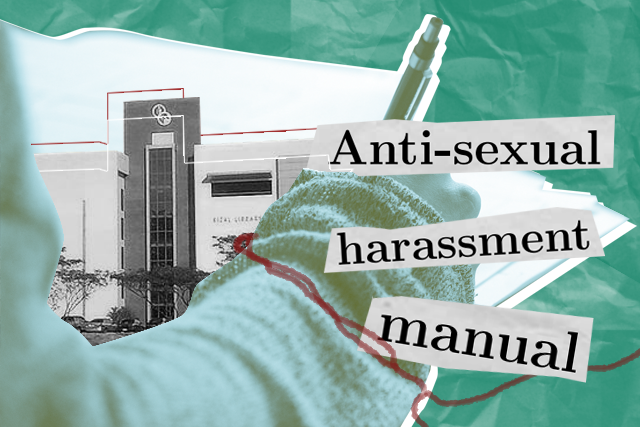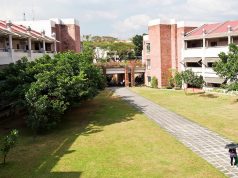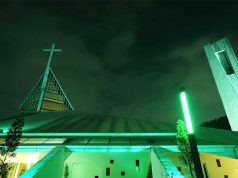
Alumni of the Ateneo de Manila University released an online petition in hopes to compel the university administration to amend and strengthen its sexual harassment policies following protests on campus on October 16.
This petition, already signed by over a thousand alumni, stressed that even if complainants went through the process of filing cases, the university still failed to handle them properly.
There has been an online clamor for accountability and transparency from the university over a series of sexual harassment complaints posted anonymously since 2018.
GABRIELA YOUTH SUPPORT STATEMENT TO MEMBERS OF THE ATENEO DE MANILA UNIVERSITY
Gabriela Youth expresses its support with the Ateneo community in their condemnation of the acts of sexual harassment and abuses that have taken place inside their insitution. https://t.co/xO2BD5DwXU
— Gabriela Youth (@gabrielayouthph) October 16, 2019
Part of the statement said:
“We demand that the university, in consultation with other members of the university community, especially the students, either redraft its sexual harassment policies or pass the revised anti-sexual misconduct code of conduct, which contains stronger and more comprehensive provisions.”
They pointed to a power imbalance in the Ateneo community that makes members resort to social media to air their concerns and stories.
Facebook page Ateneo Freedom Wall, in particular, became a go-to place for students to speak out on alleged experiences in the hands of professors and fellow students in the university.
“This is a reasonable avenue for persons in distress in light of the power imbalance between students and teachers—or even junior faculty and tenured faculty—and the current opaqueness and inaccessibility of the grievance procedure. We should assume the good faith of these complaints,” the group said.
A report fromthe Sanggunian Commission on Anti-Sexual Misconduct and Violence showed that only 28.9% of cases of sexual misconduct were resolved from August 2017 to July 2019.
Moreover, only 31.6% of cases filed were stuck in the process while the remaining 39.5% have meted no official disciplinary action.
It should be noted that the data was limited to those referred to the organization.
The protests happened after a post from another purported victim of sexual harassment made rounds online.
Caloy Conde, country researcher for New York-based Human Rights Watch, picked this up and highlighted the need to address sexual harassment and violence cases in all educational institutions in the country.
Response of the university: A draft manual
Ateneo President Jett Villarin released a memo that a manual on handling sexual harassment cases had been drafted, provided by the provisions stated in the new Safe Spaces Act.
JUST IN: University President Jett Villarin, SJ, released a memo today, October 16, on the creation of an Anti-Sexual Harassment Manual draft. The manual is scheduled for release at most by the end of the year.
See the full statement here: pic.twitter.com/siXNQg3THq
— The GUIDON (@TheGUIDON) October 16, 2019
Nina Patricia Sison-Arroyo, legal counsel for Loyola Schools, was the one tasked to create the manual, which is set to be released before the year ends, with the following information:
- Definition of sexual harassment
- Imposable sanctions for the different types of sexual harassment
- Grievance procedures and
- Modes of intervention and assistance
University officials previously released a statement that the Committee on Decorum and Investigation is always prepared to look into formal complaints accordingly.
The University has released an official statement regarding the October 15 Sexual Misconduct and Violence Mobilization. pic.twitter.com/BECi2mqoQO
— Ateneo de Manila (@ateneodemanilau) October 16, 2019
They also admitted that anonymous online reports are trickier to handle and pursue.
They cited the Data Privacy Act and the Safe Spaces Act as measures they strictly follow in terms of keeping certain information confidential.
They also hoped that the pending release of the implementing rules and regulations of the Safe Spaces Act will elaborate on the provision on the responsibility of school administrators. — Artwork by Uela Altar-Badayos









